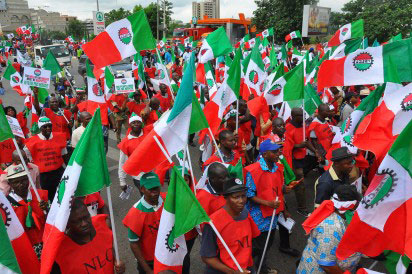By Victor Ahiumayoung
Organised labour, yesterday, in Lagos, pleaded with the Federal Government to come up with workable policies to ensure adequate and stable power supply in the country.

Speaking through General Secretary of the National Union of Textile, Garment and Tailoring Workers of Nigeria NUTGTWN, Mr. Issa Aremu, labour contended that stable power supply would enhance production of goods and services in the country.
He spoke at the union’s 40th anniversary and 30th education conference in Lagos on NUTGTWN at 40: Repositioning Labour and Industry for the Next 40 Years.
According to him, poor electricity supply had contributed to the collapse of industrial sector in Nigeria, particularly the textile industry, besides smuggling and dumping.
According to him, “in 1983, Nigeria’s textile industry became the largest employer of labour in West Africa with over 200 companies.
Electricity: Saki residents bemoan month-long outage
“Today, many factories have closed with less than 40 in operation. In the peak of the boom, the industry employed more than 500,000 direct workers. But today it has less than 60,000 workers. Necessary infrastructure must work to revive the textile industry.”
Aremu recalled that after the establishment of the first textile company, Kaduna Textile Mill in 1957, other state governments started creating their own companies to boost development, leading to emergence of Aba, Asaba and many other textile mills to create jobs.
On his part, pioneer President of Nigeria Labour Congress, Alhaji Hassan Sumonu, in his goodwill message, said it would be difficult for the country to industrialise if it continued to produce about seven thousand mega watts of electricity.
Also, Director General, Nigeria Employers’ Consultative Association, NECA, Mr. Segun Oshinowo, said it is only good governance that can address poverty and not collective bargaining alone.
Source: https://www.vanguardngr.com/2018/10/organised-labour-tasks-fg-on-workable-power-supply-policies/


